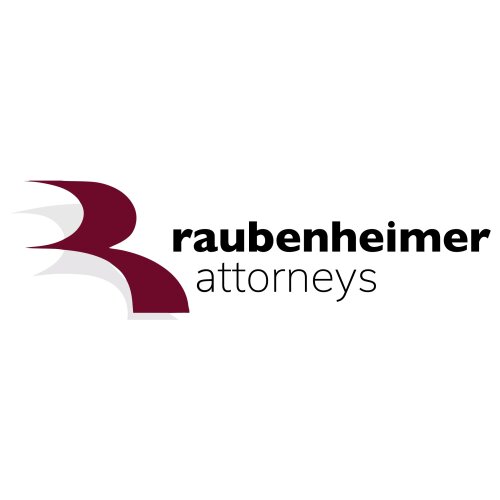Best Franchising Lawyers in George
Share your needs with us, get contacted by law firms.
Free. Takes 2 min.
List of the best lawyers in George, South Africa
About Franchising Law in George, South Africa
Franchising in George, South Africa, is part of a dynamic and growing business landscape that connects franchisors and franchisees in mutually beneficial arrangements. A franchise arrangement allows individuals to operate a business using the branding and operational models developed by an existing successful enterprise. George, as a locale, combines its economic activities with the larger legal frameworks prevalent in South Africa, adhering to national regulations with local nuances. The primary legislation governing franchising is the Consumer Protection Act 68 of 2008, which aims to ensure fair and transparent dealings between franchisors and franchisees.
Why You May Need a Lawyer
Having a lawyer is crucial in various situations associated with franchising. Here are some common scenarios where legal help may be needed:
- Understanding the Terms: Franchise agreements can be lengthy and complex. A lawyer can help interpret the terms and clarify obligations and rights.
- Negotiating Agreements: Lawyers provide negotiation support to ensure favorable terms before signing a franchise agreement.
- Due Diligence: Legal experts conduct due diligence to uncover any potential issues with the franchisor or the franchise opportunity.
- Dispute Resolution: In case of conflicts between franchisors and franchisees, an attorney can mediate or represent you in legal proceedings.
- Compliance: Lawyers ensure compliance with the Consumer Protection Act and other relevant local laws.
Local Laws Overview
The Consumer Protection Act 68 of 2008 is pivotal in franchising within South Africa, including George. Critical aspects include:
- Disclosure: Franchisors must provide a disclosure document to the franchisee at least 14 days before signing the agreement.
- Cooling-off Period: Franchisees have the right to cancel a franchise agreement within 10 business days after signing, providing a safety net against impulsive decisions.
- Obligations and Rights: The Act outlines specific duties and responsibilities for both parties, ensuring a balanced contractual relationship.
- Changes in Terms: Any amendments to the franchise agreement require mutual consent and documented changes.
- Consumer Rights: The Act also emphasizes the protection of consumer rights within franchise operations.
Frequently Asked Questions
What is a franchise agreement?
A franchise agreement is a legally binding contract between a franchisor and a franchisee that outlines the terms and conditions of the franchise relationship, including the use of trademarks, fees, obligations, and operational guidelines.
How is franchising regulated in George?
Franchising in George is governed under the national framework of South Africa's Consumer Protection Act 68 of 2008, which mandates fair practices and transparent relationship dynamics between franchisors and franchisees.
Do I need a lawyer to review my franchise agreement?
Yes, it is highly recommended to have a lawyer review your franchise agreement to ensure you understand the complex terms, recognize potential risks, and verify that the contract complies with legal standards.
What fees are involved in purchasing a franchise?
Typically, franchisees face costs such as initial franchise fees, ongoing royalty fees, marketing fees, and potentially other operational costs as defined in the franchise agreement.
Can I exit a franchise agreement prematurely?
The ability to terminate a franchise agreement early will depend on the terms outlined in the agreement. Legal advice is often necessary to explore your options without incurring penalties.
What is a disclosure document in franchising?
A disclosure document provides detailed information about the franchisor, the franchise system, and the rights and responsibilities of the franchisee. It is an essential tool for making informed decisions.
Are there franchising opportunities unique to George?
While there are numerous national and international franchises available, George may offer unique local opportunities that capitalize on regional markets and preferences.
Is franchise negotiation common in George?
Yes, prospective franchisees often negotiate various aspects of a franchise agreement to secure favorable terms, emphasizing the importance of legal assistance in these discussions.
How can I ensure compliance with franchising laws?
To ensure compliance, work with legal experts who are familiar with local and national franchising laws to regularly review and maintain up-to-date business practices.
What is the cooling-off period for franchise agreements?
The cooling-off period allows a franchisee to withdraw from a franchise agreement within 10 business days after signing, promoting careful consideration of the commitments involved.
Additional Resources
For further insight and assistance, consider these resources:
- South African Franchise Association (SAFA): A body that provides support and information for franchisors and franchisees.
- National Consumer Commission: A regulatory entity overseeing compliance with the Consumer Protection Act.
- Local Business Associations: Offer networking opportunities and additional support tailored to the George area.
- The Department of Small Business Development: Provides resources and guidance for entrepreneurs entering the franchising sector.
Next Steps
If you are considering entering the franchise business or need legal assistance, follow these steps:
- Research: Gather as much information as possible about the franchise opportunity.
- Consult a Lawyer: Engage a reputable local attorney with expertise in franchising to review documents and provide guidance.
- Network: Connect with other franchisees and business networks to gain insight and share experiences.
- Prepare Documentation: Ensure all necessary documents, forms, and registrations are in place.
- Sign Agreements with Confidence: Make informed decisions and proceed with agreements only after thorough review and understanding.
Lawzana helps you find the best lawyers and law firms in George through a curated and pre-screened list of qualified legal professionals. Our platform offers rankings and detailed profiles of attorneys and law firms, allowing you to compare based on practice areas, including Franchising, experience, and client feedback.
Each profile includes a description of the firm's areas of practice, client reviews, team members and partners, year of establishment, spoken languages, office locations, contact information, social media presence, and any published articles or resources. Most firms on our platform speak English and are experienced in both local and international legal matters.
Get a quote from top-rated law firms in George, South Africa — quickly, securely, and without unnecessary hassle.
Disclaimer:
The information provided on this page is for general informational purposes only and does not constitute legal advice. While we strive to ensure the accuracy and relevance of the content, legal information may change over time, and interpretations of the law can vary. You should always consult with a qualified legal professional for advice specific to your situation.
We disclaim all liability for actions taken or not taken based on the content of this page. If you believe any information is incorrect or outdated, please contact us, and we will review and update it where appropriate.













